MALAYSIANSKINI | Growing up in Perlis, avid birdwatcher Rosli Omar was always fond of visiting the jungle where he could see exotic birds flying freely.
Even as he took pictures of the birds flying through the forests, Rosli noticed another wildlife form fluttering its wings. So began his interest in the butterfly.
Since then, the 66-year-old former academician turned photographer never looked back. After completing a doctorate in artificial intelligence at the London Imperial College, he decided to join the Malaysian Nature Society in 1996.
“I always loved going to the forest and exploring nature but it was never something serious,” he told Malaysiakini.
While occasionally trekking as a bird watcher, Rosli worked as an electrical engineering lecturer for years before calling it quits.
“I was diagnosed with glaucoma and became worried that my eyesight would worsen, so I requested an early retirement. Then, I started to question my life,” he said.
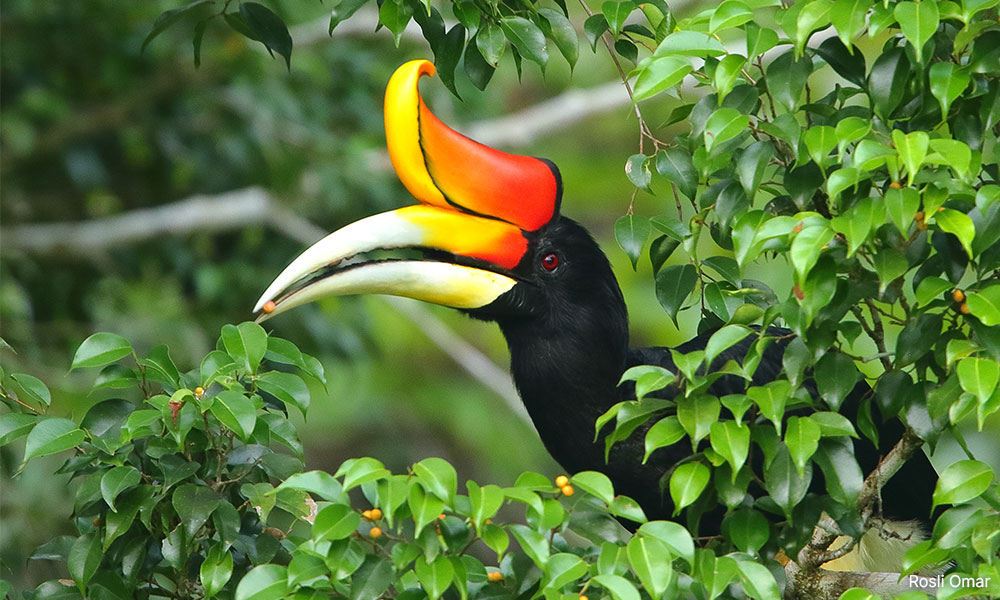
Rosli decided to do something that was related to his hobby at the time.
“I figured, why not take photos while watching the birds as the population is getting less and this would be a way to record for the future,” he mentioned.
He added that his family was not shocked when he ended his lecturing stint and jumped into a new passion.
“Perhaps, it was because I’m the fourth among five siblings, so they are not worried much about it.
“My siblings worked as researchers for the Malaysian Agricultural Research and Development Institute (Mardi), a doctor and pharmacist. There is not much difference between my former profession and theirs.
“One of my brothers who worked with Mardi was doing research for paddy fields. He always had a camera with him, so I think that influenced me," he said.
Documenting records through books
Although he usually takes photos alone, Rosli would sometimes have other birdwatchers tagging along.
“I started taking pictures of birds and butterflies in 2012, but I have been a bird watcher since 1998.
"When I published my first book, it was a 20-year-old collection of pictures.
“Taking pictures of the butterflies started as a ‘side thing’ while working on the birds. However, after my first book, the butterflies became my main focus,” he said.
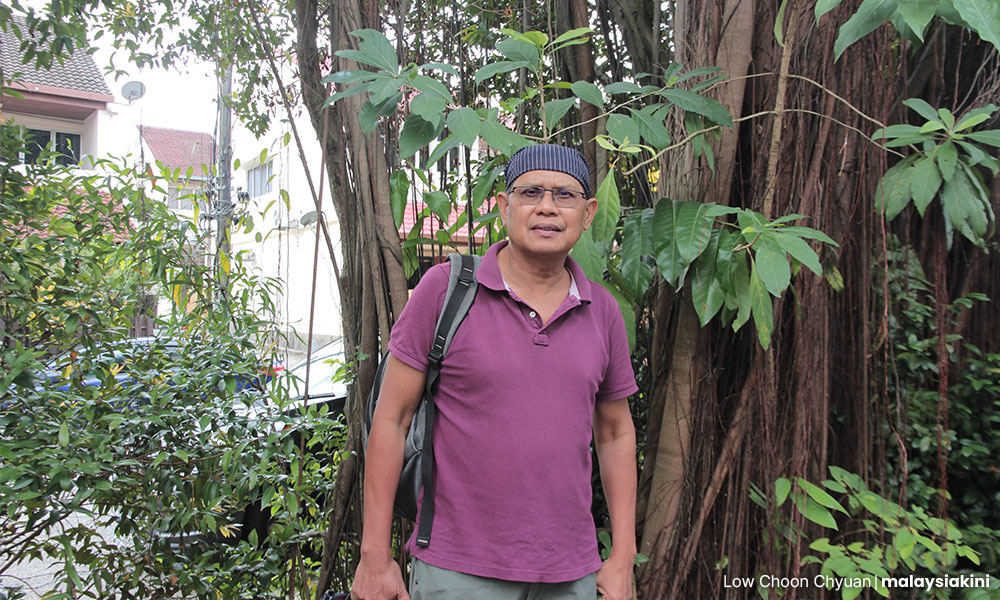
After leaving his lecturing job, Rosli travelled to several forests across the peninsula, such as Pahang National Park, Panti in Johor, and Hulu Langat in Selangor to get pictures of birds and butterflies.
Rosli’s first photo guidebook, “Birds of the Forest of the Peninsular” was published in 2018. Recently, together with two other authors, he published “Butterflies of Peninsular Malaysia”.
To date, he has taken pictures of 360 types of birds and 360 species of butterflies.
He said among all the butterfly pictures he took, he was most fond of Rajah Brooke’s Birdwing, which is Malaysia’s national butterfly and has a wingspan of between 16cm and 18cm.
“I couldn’t remember the exact time I captured the picture, but I think it was during my early days of taking bird pictures in Kuala Woh, Perak,” he said.
While working on his first book, Rosli had a chance to learn new skills like editing and doing layout.
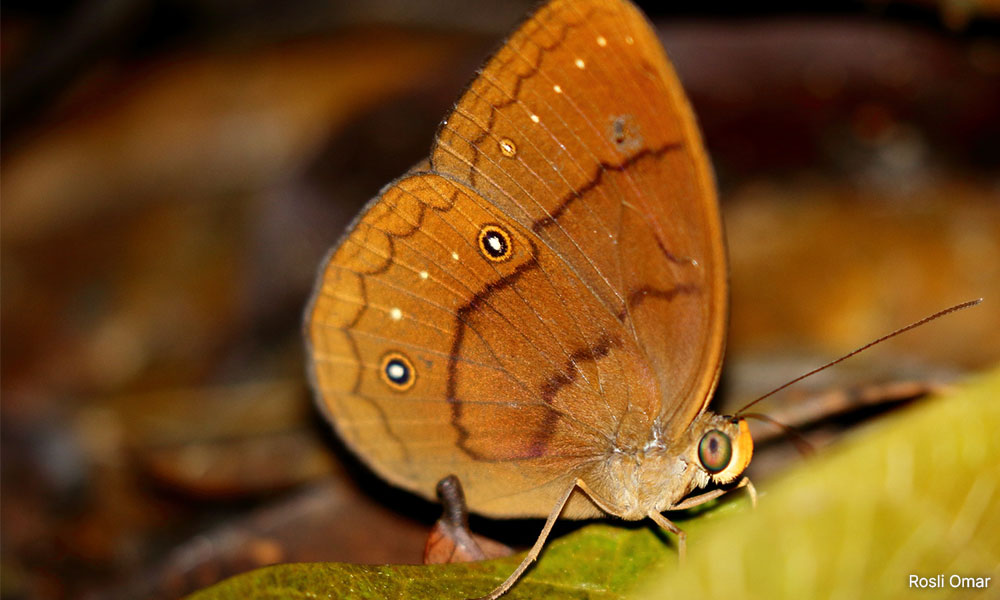
“Other than hiring an artist to make the book cover, I worked on my first book alone. Although I took some time to learn, it was a pleasant experience.
“For the butterfly book, I got to work with other authors. We also had a publishing team working on the layouts and other things,” he said.
The second book - which was published by the Natural Resources, Environment and Climate Change Ministry, featured no fewer than 280 butterfly species photographed by Rosli.
He had contacted an expert to confirm the identification work done. After they met, the two decided to come up with the butterfly book.
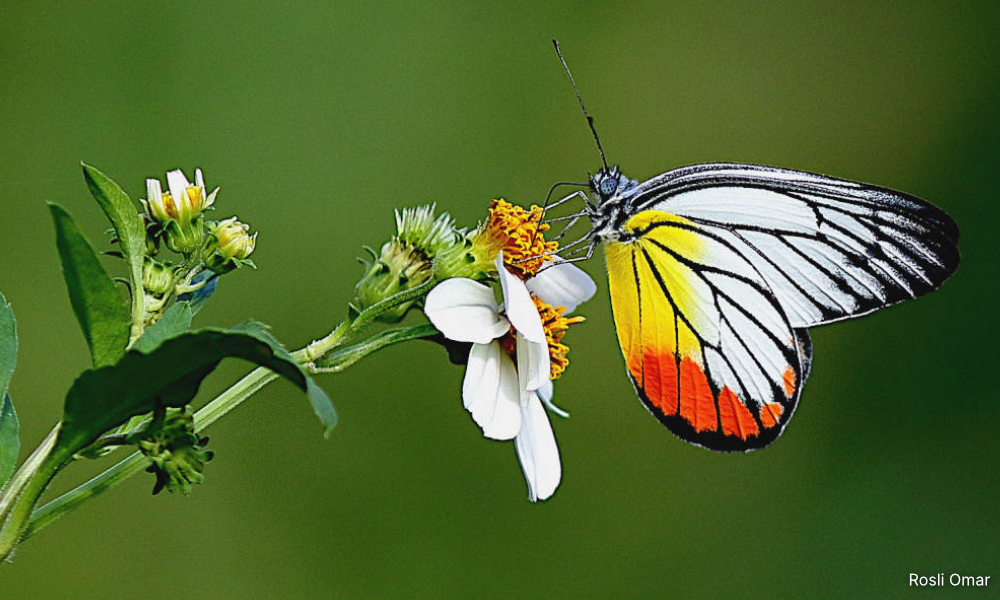
“The expert is a lecturer who proposed the book idea to the Malaysia Biodiversity Information System (MyBis). His student, who assisted him, became the third author,” he said.
Although the limited edition book is not for sale, Rosli said the online version is free.
Naming butterflies
Despite having published two books, Rosli showed no sign of slowing down. He is now working to capture more butterfly pictures while creating a checklist for the animals and insects in the peninsula.
While working on the second book, Rosli realised something - not all local butterflies had their names in Malay.
“I’m unsure how that happened but perhaps it was not a priority to anyone,” he said.
After a friend introduced him to the Department of Standards Malaysia, Rosli proposed to create the checklists.
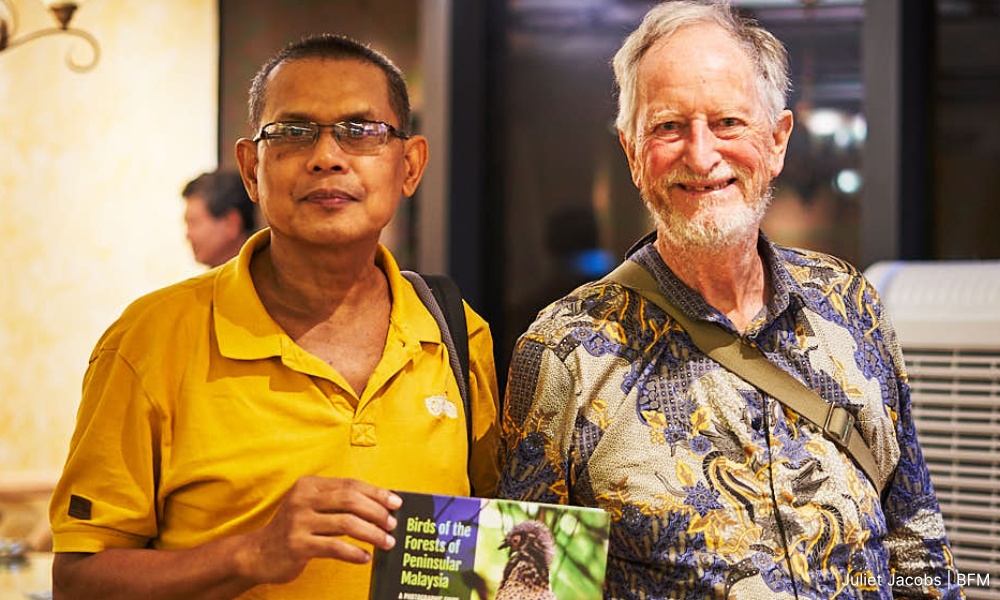
While there are more than 1,000 types of butterflies – divided into six families – Rosli said they were not listed systematically.
“For example, based on their English names, no one would guess that the Painted Lady and Red Indian Admiral butterflies are from the same family.
“Only when you look at their scientific name will you notice they are related as they came from the same genus, called Vanessa,” he said.
As such, Rosli made an effort to list them accordingly, in addition to giving several butterfly species Malay names.
“That is how Painted Lady butterflies became Laksamana Bersolek, and Red Indian Admiral became Laksaman India Merah.
“We even created the Malay name for the Rajah Brooke’s Birdwing, called Sayap Burung Raja Brooke,” he said.
Rosli added that the checklist will feature scientific, English, and Malay language names for the butterflies.
“The checklists for birds, butterflies, Odonata (a group that includes dragonflies), and snakes are complete.
“Now, I am working on the checklist for mammals in the peninsula. I hope to complete and publish the checklist by the fasting month,” he said.
Apart from that, Rosli is also conducting a demographic survey where he goes to places and checks the available butterflies in the areas.
“I also joined research work in Batu Caves to see the biodiversity in the area where my focus is the butterfly,” he said, adding that he is doing similar work at Bukit Dinding, Bukit Lagong, Shah Alam Community Forest (SACF), and other places.
Conservation and environmental politics
On that note, Rosli said that he would use his findings to show the authorities how developments in such areas would likely lead to the loss of local biodiversity.
And this is where his political leanings come in. Apart from being a conservationist, Rosli had a long history of political activism. He was a member of Parti Rakyat Malaysia (PRM) before the party merged with Parti Keadilan Nasional to form PKR.
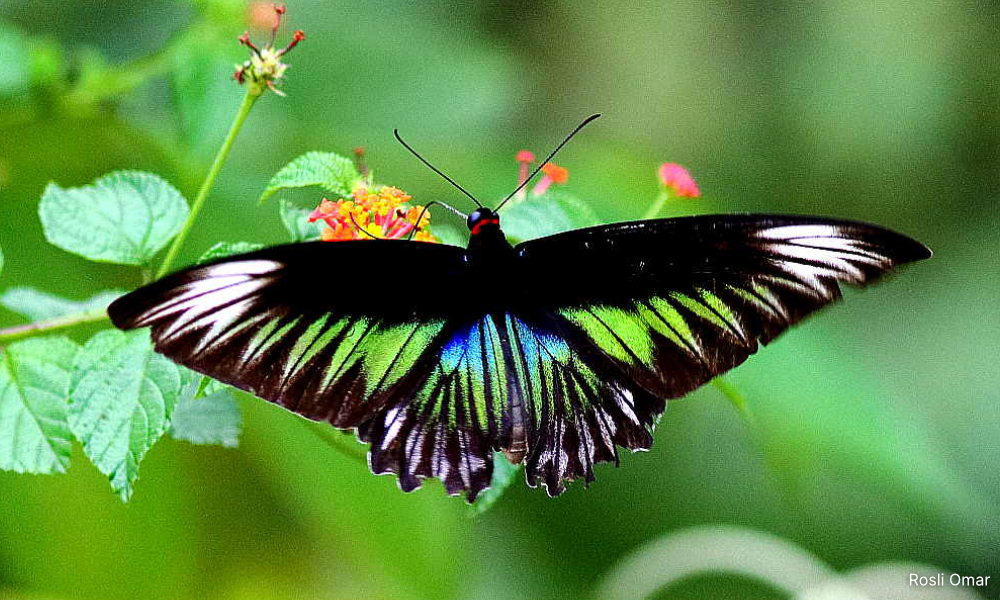
“At the time, I saw PKR as a party that is concerned about the environment. Unlike others, they had an interest,” he said.
However, given the Selangor state government’s recent moves to develop forest land, Rosli is now unsure if PKR’s stand remains the same.
“Selangor PKR wants to develop forests. My survey showed more than 80 species (butterflies) are found in Bukit Lagong, but they want to mine the area,” Rosli lamented.
While he agreed that the country needs a pro-environment party, Rosli said a lot of work needs to be done before such a party can do well in elections.
“There is one called Parti Hijau Malaysia but I’m unsure if they are registered. If we want to set up a Green Party, we have to look at the long-term struggle and don’t expect to win in the next two or three elections.
“I used to feel the same when I was in PRM and then PKR. I used to think Umno was unbeatable but it got defeated,” he said.
With that said, Rosli warned that environmentalists are pressed for time in getting the government to change policies on conservation.
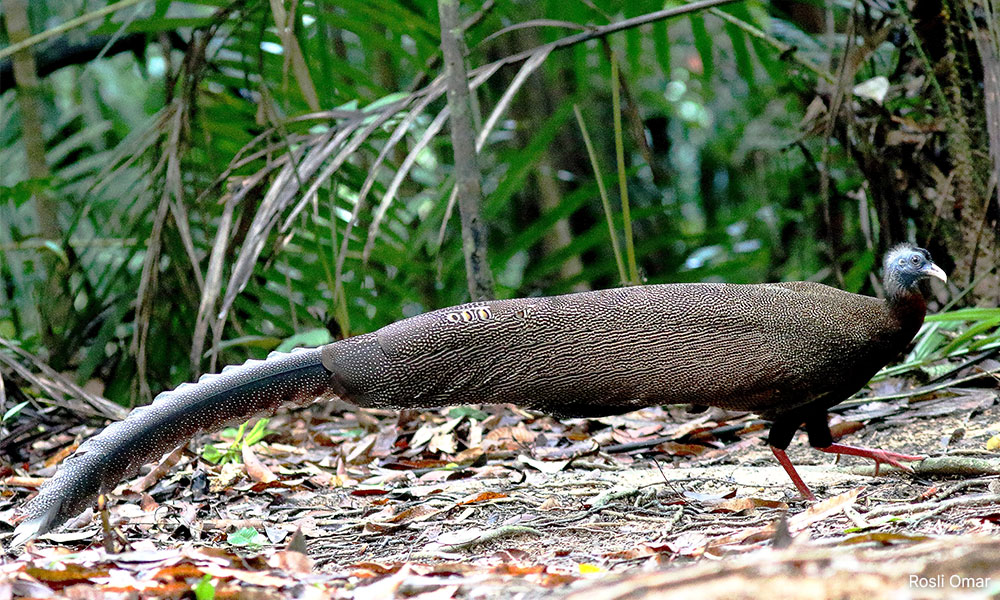
“As time goes by, our forests and wetlands are being developed.
“NGOs can pressure, but for things to happen such as introducing laws and making actual change, you need to be in the government. We need a political party (a green party) to win the election and make changes,” he said.
MALAYSIANSKINI is a series on Malaysians you should know.




No comments:
Post a Comment
Note: Only a member of this blog may post a comment.